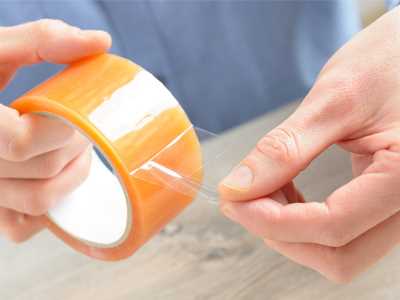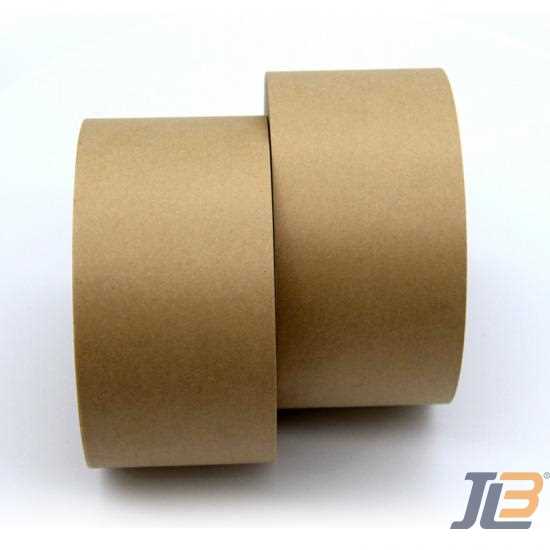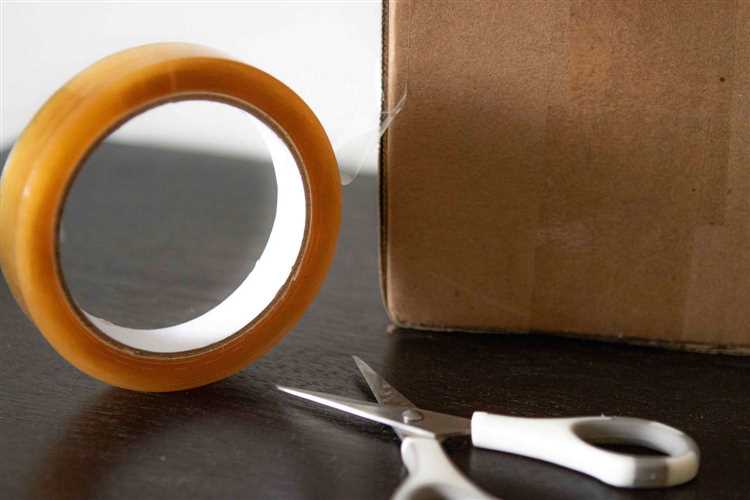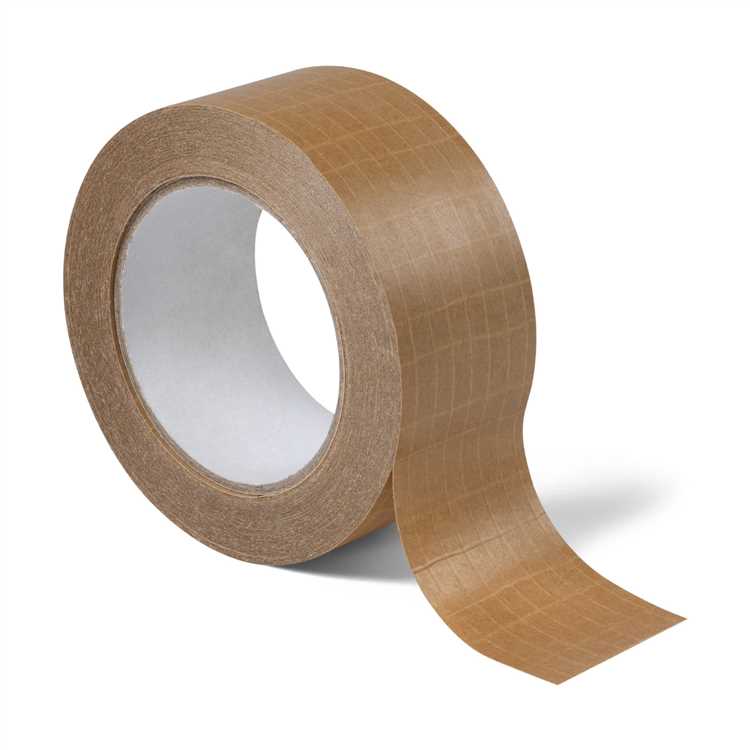
When it comes to recycling, many people wonder about the fate of common household items. Can tape be recycled? The answer may surprise you!
Tape, such as packaging tape or duct tape, is often made from materials that are not easily recyclable. Most tapes are made from plastic, which is a difficult material to recycle due to its composition and adhesives. However, there are some exceptions.
Masking tape, for example, is often made from paper and can be recycled in many recycling programs. This type of tape is commonly used in painting projects and can usually be placed in the paper recycling bin along with other paper products.
Avoiding waste is always the best option, so try to use tape sparingly and choose recyclable options whenever possible. If you do have tape that cannot be recycled, consider reusing it before throwing it away.
Remember to always check with your local recycling center or waste management facility for specific guidelines on tape recycling. They may have alternative recycling options or specific instructions for tape disposal in your area. Together, we can make a difference in reducing waste and protecting our planet!
- Benefits of Recycling Tape
- Types of Tape That Can Be Recycled
- 1. Paper Tape
- 2. Masking Tape
- How to Recycle Tape
- 1. Check if your local recycling program accepts tape
- 2. Remove any non-recyclable components
- 3. Separate the tape from its dispenser
- 4. Place the tape in a recycling bin or drop-off location
- Recycling Tape at Home
- Q&A:
- Can tape be recycled?
- What should I do with tape that cannot be recycled?
- How can I recycle paper-based tape?
- What are the benefits of using recyclable tape?
Benefits of Recycling Tape
Recycling tape can have several environmental and economic benefits:
1. Reduces waste: Recycling tape keeps it out of landfills, reducing the amount of waste that ends up in these already overcrowded areas. By recycling tape, the amount of waste that needs to be disposed of can be significantly reduced.
2. Conserves resources: Tape is typically made from materials such as plastic or paper that require the extraction of natural resources. By recycling tape, these resources can be conserved, reducing the need for further extraction and minimizing environmental impact.
3. Energy savings: Recycling tape saves energy compared to producing new tape from raw materials. The recycling process often requires less energy and resources than the production of new materials, leading to energy conservation and cost savings.
4. Supports the economy: Recycling tape can help create and support jobs in the recycling industry. This industry plays a vital role in the economy, providing employment, generating revenue, and contributing to local communities.
5. Promotes sustainable practices: Recycling tape is a step towards fostering sustainable practices. By recycling tape, individuals and businesses can contribute to a circular economy, where materials are used efficiently and waste is minimized.
6. Protects ecosystems and wildlife: Tape and its packaging can pose a risk to wildlife if not disposed of properly. Recycling tape helps ensure that these materials are properly managed, reducing the risk of harm to ecosystems and wildlife.
7. Reduces greenhouse gas emissions: Recycling tape can help reduce greenhouse gas emissions associated with the production of new materials. By using recycled materials, less energy and resources are needed, leading to a reduction in greenhouse gas emissions that contribute to climate change.
Overall, recycling tape is a responsible and sustainable choice that can benefit the environment, conserve resources, save energy, support the economy, and protect ecosystems and wildlife.
Types of Tape That Can Be Recycled

Tape is a common household item that can be found in various forms and used for different purposes. While certain types of tape may not be recyclable, there are a few types that can be recycled, helping to reduce waste and environmental impact. Here are some types of tape that can be recycled:
1. Paper Tape
Paper tape is made of paper and typically has an adhesive backing. This type of tape can be recycled because it is primarily made of paper, which is a recyclable material. To ensure proper recycling, it is recommended to remove any non-paper components, such as metal or plastic, before recycling.
2. Masking Tape

Masking tape is a versatile tape that is commonly used in painting and construction projects. It is typically made of paper with a pressure-sensitive adhesive. The paper component of masking tape makes it recyclable. Before recycling, it is advisable to remove any non-paper elements, such as metal clips or plastic handles, to facilitate the recycling process.
Note: While some types of tape can be recycled, it is important to check with your local recycling facility for specific guidelines. Some recycling facilities may not accept certain types of tape due to the complexity of the recycling process or the presence of non-recyclable components.
When it comes to tape, choosing recyclable options can make a difference in reducing waste and promoting sustainability. By properly recycling tape and opting for eco-friendly alternatives, we can contribute to a cleaner and greener environment.
How to Recycle Tape
Recycling tape is a great way to reduce waste and minimize your environmental impact. Here are some steps you can take to recycle tape:
1. Check if your local recycling program accepts tape
Start by checking with your local recycling program to see if they accept tape for recycling. Some programs may only accept certain types of tape, such as duct tape or masking tape, while others may accept all types. Make sure to follow any guidelines or instructions provided by your recycling program.
2. Remove any non-recyclable components

Before recycling tape, it’s important to remove any non-recyclable components, such as plastic handles or metal attachments. These components can contaminate the recycling process and cause issues. Use scissors or a utility knife to carefully remove any non-recyclable parts from the tape.
3. Separate the tape from its dispenser
If the tape is still attached to a dispenser, separate the two before recycling. Usually, the tape can be easily peeled off from the dispenser. This will ensure that both the tape and the dispenser can be properly recycled or disposed of.
4. Place the tape in a recycling bin or drop-off location
Once you have prepared the tape for recycling, place it in your recycling bin or take it to a designated drop-off location. If your local recycling program doesn’t accept tape, you can also reach out to specialized recycling facilities that handle adhesive products or packaging materials.
Remember to always follow the guidelines provided by your recycling program or facility to ensure that the tape is properly recycled and doesn’t contaminate other materials.
By taking these steps to recycle tape, you can help reduce waste and contribute to a more sustainable future.
Recycling Tape at Home
If you use tape frequently and are concerned about its impact on the environment, you’ll be pleased to know that there are ways to recycle tape at home. Here are a few methods you can try:
- Reuse the tape: If the tape is in good condition and can still stick, consider reusing it for other purposes. You can use it to seal packages, label items, or even hang lightweight decorations.
- Donate: If you have excess tape that you don’t need, consider donating it to local organizations or schools that might have a use for it. This way, the tape can be reused and not go to waste.
- Check with recycling programs: Some recycling programs accept certain types of tape for recycling. It’s worth checking with your local recycling center to see if they have any specific guidelines or recommendations for recycling tape.
While recycling tape might not be as straightforward as recycling other materials, these options can help reduce waste and give tape a second life. By reusing or donating tape and exploring recycling programs, you can make a positive impact on the environment.
Q&A:
Can tape be recycled?
Yes, tape can be recycled, but it depends on the type of tape. Some tapes, like plastic-based shipping tapes, cannot be recycled and need to be thrown in the trash. However, there are also eco-friendly tapes, such as paper-based or biodegradable tapes, that can be recycled.
What should I do with tape that cannot be recycled?
If you have tape that cannot be recycled, the best thing to do is to remove it from the material it’s attached to and throw it in the trash. It’s important not to contaminate the recycling process with non-recyclable materials.
How can I recycle paper-based tape?
To recycle paper-based tape, you can simply throw it in the recycling bin along with other paper products. Make sure the tape is clean and free of any other materials. The recycling facility will separate the tape from the paper during the recycling process.
What are the benefits of using recyclable tape?
Using recyclable tape has several benefits. Firstly, it helps reduce waste and minimizes the environmental impact. Secondly, it promotes a circular economy by allowing the materials to be reused and recycled. Additionally, using recyclable tape can be cost-effective in the long run as it reduces the need to buy new tape constantly.